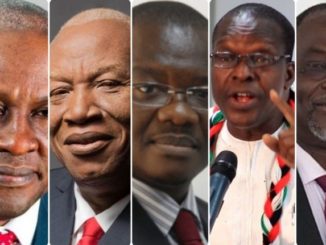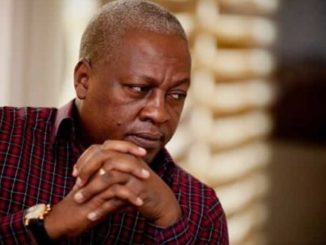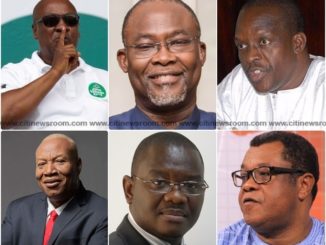 Years of unfulfilled promises and corruption scandals in Ghana have fostered cynicism, threatening democratic stability. President Mahama’s administration must address this through decisive action within its first 120 days.
Years of unfulfilled promises and corruption scandals in Ghana have fostered cynicism, threatening democratic stability. President Mahama’s administration must address this through decisive action within its first 120 days.
Ghana’s recent election marked a pivotal moment for the nation. With the opposition National Democratic Congress (NDC) triumphing after years of public dissatisfaction with the New Patriotic Party’s (NPP) governance, the NDC now faces the daunting task of delivering on heightened public expectations dailymaverick reports.
This is not just a victory for the NDC but an indictment of Ghana’s broader political culture — a clarion call for transformative governance.
Former president John Dramani Mahama’s return offers a rare second chance to reset the trajectory of Ghana’s development. Yet, this opportunity is not without peril.
If Mahama is to succeed in his second stint as president, he must move beyond the political norms of the past and embrace a bold, strategic and ethical leadership agenda that prioritises development, delivers results and inspires confidence in Ghana’s future.
Crafting a vision beyond partisan politics
Ghana’s challenges — economic volatility, unemployment and infrastructure gaps — demand a unifying national vision that transcends political fault lines. Initiatives like the Ghana Compact, which brought together diverse stakeholders to agree on national priorities and create a roadmap for development, offer a practical solution.
Among other things, the foundation of such a vision lies in economic diversification, focusing on growth anchors such as agro-processing, green energy and digital innovation. These sectors hold the potential to drive sustainable growth, create jobs and reduce reliance on volatile commodities.
History shows that high-growth economies not dependent on single-commodity boomsshare a few key characteristics. These nations transcend the ideological and identity baggage of their pasts, leveraging their historical strengths — such as education systems, infrastructure and strategic trade connections — while shedding the detrimental legacies of paternalism, division and exclusion.
Rather than treating business as an adversary, they forge partnerships that attract capital, foster innovation and integrate into global value chains through multinational collaborations. Their strategies are marked by disciplined planning, an emphasis on infrastructure that supports long-term aspirations and relentless investment in human capital through robust education systems.
Today, Ghana’s reliance on commodities like gold and cocoa leaves it vulnerable to external shocks. Contrast this with Malaysia’s transformation: from an agrarian economy in the 1970s to a diversified industrial hub, Malaysia invested heavily in education, infrastructure and manufacturing.
In essence, it confronted the harsh realities of its situation, took ownership of the policies and delivered tangible results — that’s the leadership Ghana needs.
Restoring trust through delivery
The erosion of public trust in governance cannot be overstated. Years of unfulfilled promises and corruption scandals have fostered cynicism, threatening democratic stability. Mahama’s administration must address this through decisive action within its first 120 days.
Immediate steps should include:
- Reducing procurement corruption: enforce transparency by digitising procurement processes and publishing all government contracts. Countries like Estonia have excelled in digital governance, showcasing how technology reduces graft and improves efficiency;
- Delivering tangible outcomes: prioritise quick wins in infrastructure, education, and healthcare. Visible, impactful projects — like rehabilitating rural roads or upgrading public hospitals — can rebuild faith in government efficacy; and
- Establishing accountability mechanisms: create independent oversight bodies for flagship programmes, ensuring timely execution and budget adherence.
Ethical leadership and technocratic governance
Success will hinge on Mahama’s ability to assemble a governance team that prioritises competence over political allegiance. Ghana cannot afford another administration where loyalty trumps expertise. A model worth emulating is Rwanda’s approach to technocratic governance, where leaders are held accountable to deliver measurable results.
Mahama must also address the systemic issues that have plagued his party. The NDC’s historical weaknesses — including patronage politics and resource mismanagement — must be confronted head-on.
The scandals that plagued his previous administration and the recently demoted NPP government have eroded public trust. To rebuild confidence, Mahama must appoint capable, credible individuals to key positions and create an administration that values competence and integrity as much as it does loyalty.
Appointing an independent anti-corruption czar and strengthening the auditor-general’s office would signal his commitment to ethical leadership. Similarly, a presidency populated by technocrats with proven expertise will send a strong signal to Ghanaians and international partners that Ghana is serious about reform.
Structural reforms for economic resilience
Ghana’s structural vulnerabilities require long-term reforms that build economic resilience. To transition from a commodities-based economy to one driven by value addition, Mahama could:
- Invest in agro-industrial parks: establish regional hubs that link smallholder farmers to inexpensive and accessible processing facilities, creating jobs and reducing post-harvest losses;
- Foster regional trade: capitalise on the African Continental Free Trade Area to position Ghana as a regional export hub, mainly processed foods and textiles; and
- Promote green energy solutions: partner with private investors to expand solar and wind projects, reducing energy costs for businesses while achieving climate goals.
Governance, too, ought to shift from “us versus them” to a collaborative model that unites stakeholders. The private sector, academia and civil society have critical roles to play in shaping policy and driving innovation. Creating presidential advisory councils with diverse expertise can institutionalise this collaboration, much like South Korea’s Economic Planning Board did during its developmental heyday.
Seizing the moment
The stakes have never been higher. Ghana stands at the crossroads of renewal or regression. Mahama’s administration has a unique opportunity to redefine leadership — not through rhetoric, but through results.
One of Ghana’s most persistent governance failures has been the gap between policy and implementation. Good ideas often falter due to weak institutions, poor coordination and inadequate accountability mechanisms. Mahama’s administration must prioritise execution, ensuring policies translate into tangible benefits for citizens. Success will depend on a disciplined governance approach that prioritises outcomes over optics.
Ghanaians, too, have a role. Civil society must hold leaders accountable, demand transparency and actively participate in shaping policy. This presidency must be remembered not as a second chance squandered, but as the turning point when Ghana chose progress over paralysis.
Ghana’s history of democratic transitions underscores the resilience of its institutions and the will of its people. However, this moment calls for more than resilience — it calls for renewal.
Mahama’s second term is not just a return to power but a chance to rebuild trust, reset priorities and redefine leadership in Ghana. If Mahama fails to chart a different course, the consequences could extend far beyond the NDC being voted out.
He risks deepening the collapse of trust in government as a functional entity, fostering a culture of impunity where citizens take matters into their own hands, becoming active agents of insecurity and disruption. This is a dangerous trajectory for any democracy.
Nevertheless, as evidenced by the recent elections, Ghana’s new era is off to a good start. The NPP’s faltering attempts to defend its record on governance have inadvertently paid Ghanaians the highest compliment: an admission that the electorate is wide awake, undistracted by slogans, and ready to hold leaders accountable for the realities of their lives.
As opposition, the NPP may find short-term political gains in stoking the flames of mistrust and highlighting government failures. But they, too, are part of Ghana’s elite — a broader group with a track record of disappointing Ghanaians. If the system collapses, it won’t spare them. It is thus in the collective interest of both parties to step beyond the tired theatrics of politics-as-usual.
Ghana deserves leaders who prioritise the public good over personal enrichment or the outdated notion that opposition exists solely to sabotage. Governance is about lives — real people with real needs — and that is a truth we cannot afford to forget.
The time for bold, collaborative leadership is now. Anything else is a betrayal of the mandate they all hold.
The next four years will determine not just the NDC’s legacy but Ghana’s future. Let this moment be a testament to what’s possible when leadership aligns with vision, integrity, and a relentless focus on the public good. Ghana deserves no less. DM
–
DailyMaverick



